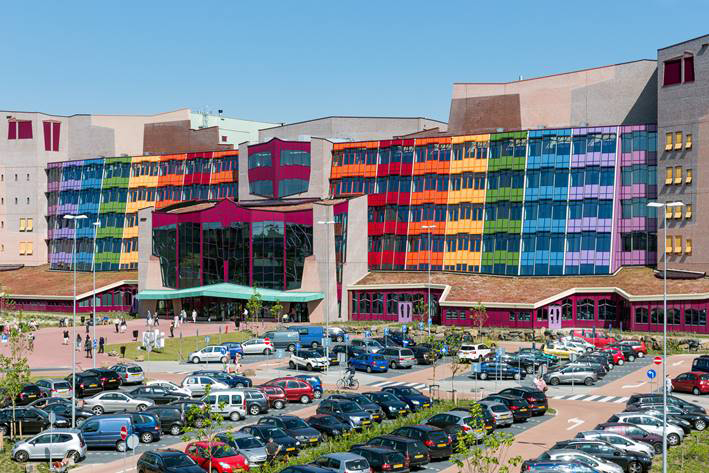Isala partners with Aidoc to harness combined potential of radiologists and AI

Isala Hospital, Netherlands
Aidoc, a leading provider of healthcare AI solutions, has signed a strategic agreement with Isala Hospital, one of the largest non-academic medical facilities in the Netherlands. Isala’s implementation of the AI Care platform, which includes three of the ten AI algorithms of Aidoc’s suite of CE-marked and FDA-cleared AI solutions, will empower the hospital to sustain high quality care and scale AI operations as needed.
Research conducted with Aidoc’s solutions shows that when utilized in clinical settings they have had a positive impact on numerous indicators, such as turnaround time, efficiency, and emergency department (ED) throughput.
Under the partnership, Isala will integrate Aidoc’s AI algorithms for triage and notification of intracranial haemorrhage (ICH), pulmonary embolism (PE), and c-spine fractures. Isala is also a member of the Netherland’s seven top clinical hospitals, referred to as mProve, whose mission is to provide patients with better care every day. The inclusion of Aidoc’s AI further consolidates Isala’s position as a front-runner in medical and technical innovation in Europe, while striving to maintain high quality care amid the surging volumes that will continue in the foreseeable future.
“Imaging volumes continue to rise. Therefore, we need a clear plan on how AI technology can support radiologists to manage the increasing workload. AI has proven to offer high value by reducing turnaround time, increasing the radiologists’ confidence and reducing variability of quality,” said Dr Martijn Boomsma, radiologist at Isala and a champion of AI.
“In Aidoc we’ve found the perfect partner, a vendor who is willing to test and demonstrate the performance and is constantly working on improving their algorithms,” Dr Rogier van Dijk, radiologist at Isala and also a champion of AI, added. “At Isala, we have certainly found that value in the ability of Aidoc’s AI platform to complement our radiologists’ strengths. AI offers us a high degree of comfort amid periods of both higher and lower imaging volumes, and especially during night shifts. Beyond radiology, we also observed its ability to make a positive impact on the post-diagnosis patient pathway.”
Aidoc’s AI demonstrates high sensitivity and specificity
In clinical settings, Aidoc’s AI has demonstrated high sensitivity and specificity and the ability to complement radiologist’s strengths. In a study evaluating performance as a complement to radiologists, Aidoc’s AI showed high sensitivity and negative predictive values while the radiologist demonstrated high specificity and positive predictive value, with 70% of participant radiologists stating that AI could “improve diagnostic comfort”.
In another study, conducted by Unfallkrankenhaus Berlin, researchers showed the potential of Aidoc’s AI and physicians together could increase triaging of positive intracranial haemorrhage cases by 12.2%. Isala evaluated Aidoc’s algorithm for c-spine fractures on a validated database of 2,331 CT scans and showed the potential value of the AI as a concurrent reader by increasing the total number of fractures identified by a radiologist by 13% (ECR 2022 oral presentation).
“We are delighted to have a strategic partner like Isala, who truly sees the value of implementing AI at scale in radiology workflows and the downstream impact it can make,” said Alexander Boehmcker, Aidoc’s VP Europe. “AI is a tool that augments the radiologist and so when paired, the two complement each other and raise diagnostic efficiency. Hospitals like Isala with their visionary leadership are forging a new path, showing how AI will play a pivotal role in the future of hospital care in Europe through rigorous clinical research and perpetually proving AI’s valuable role.”
The Aidoc AI Care platform is home to 16 CE-marked radiology AI solutions – 10 developed in-house and six third-party algorithms – and multidisciplinary team coordination solutions, all driven by the underlying AI OS. Aidoc’s AI Care platform impacts patient care in more than 1,000 medical facilities worldwide, with many located in Europe.


